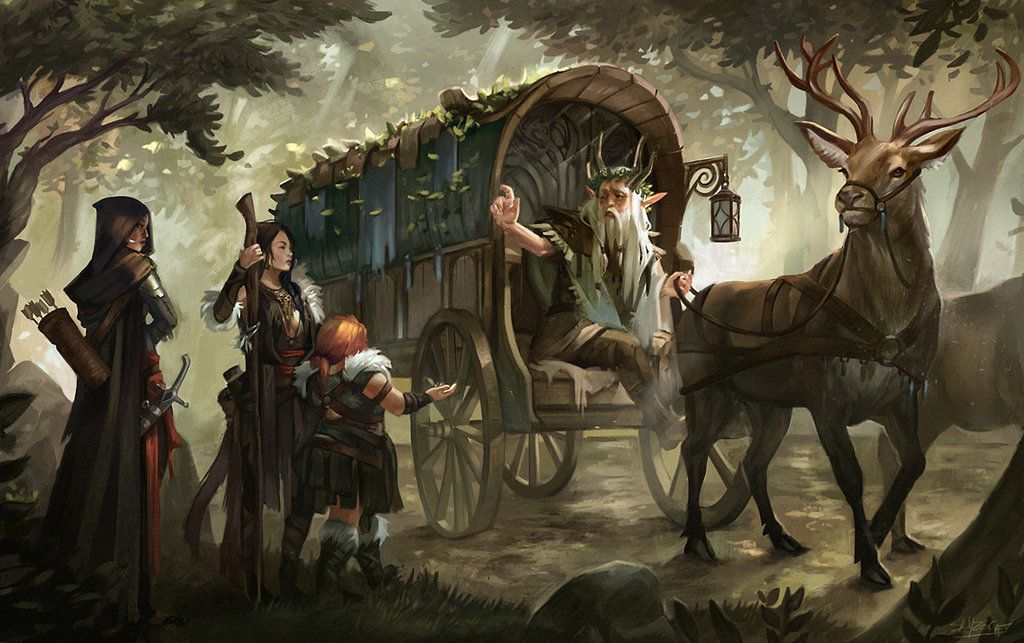Playing an ongoing Pathfinder 2e Campaign and a curious situation has come up twice now:
Most recently in a Negotiation, run as a “Social Encounter”, with a band of Demons that were hired to kill the Party, one of the players wanted to make an offer to help the Demons achieve their goal instead of their current Patron in exchange for the Party’s lives.
As Pathfinder has two separate skills for Diplomacy and Deception, I asked the Player whether their PC actually meant it, which lead to a not insignificant amount of discussion amongst the group about whether they actually did *mean* it and working out with me what that would mean.
As situations in play (this has happened another time, though not as prominently) I quite enjoyed this, even though I can’t help but feel like it’s an unintended consequence of the skill system, forcing us to somehow “lock in” whether this was gonna be a truth or a lie.
It had the feeling of a deal with the fictional universe itself and I made it clear that retconning this into a lie when they declared it a truth would have severe consequences.


3 responses to “Old Skills bring new Play”
Welcome and thanks for posting this! It’s a great topic, with a complicated history + special consideraions for the convoluted history of D&D + rabbit holes everywhere. Let’s see if I can make any sense.
There’s a big principle at work here, one of the most useful concepts that’s arisen lately (not from me, but I’ve adopted it gratefully): uncertainty. Role-playing requires that everyone knows at what points the circumstances may be drastically changed, and about what. It could be danger, knowledge, attentiveness (noticing), relationship-oriented, or really anything of consequence. It’s especially important when entering or knowing this state entails a shift in procedure, so that we are literally “playing differently” in order to move into a new (changed) state of certainty.
Enough technical babble. Maybe it’s simplest to identify the questions as whether lying to the demons means “now and forever” vs. “right now,” and also whether this is a collective/group issue, i.e., the guy is “speaking for us all” or it’s just that one person. I think you and the rest of the people playing have arrived at the answers – in fact, you couldn’t have played at all, and probably would have descended into murky noise, without doing so. The answers are pretty ballsy, too! Given “this is a binding/committed statement, not just a gut check for the moment,” and “this person speaks for us all,” the result of the roll is definitely addressing real uncertainty about what the demons do next, right here and now, as well as consequences for later across a wide variety of circumstances.
I must admit I don’t think I quite understand what you mean by uncertainty here (in your second paragraph).
Also I didn’t clarify but they did end up splitting the Party here, with two of them committing to the deal and now tasked with getting the rest to help out.
Whether allowing a split decision here was a good idea remains to be seen.
Uncertainty is a powerful concept but it takes some time to process: whenever the immediate circumstances or conditions are genuinely possible to change, and no one can predict or control how. An fight is a good example … a question of noticing an opponent is an example … a possibly-understood connection/realization is an example … a possible friendly/unfriendly interaction is an example … but in each case, only when it is played honestly in the moment and the effects really change some aspect of what’s going on. We can let it sit for a while or discuss it more, either way.
I wasn’t at the table and I don’t know any of the circumstances of play or the people, but my reading at least suggests that you, as GM, are not exerting control over play and its outcomes, but seeing where play takes you (all). Is that fair to say? Specifically, that when you played the demons and the people played their characters, although it took a bit of rules-clarification and thought, but all of you soon were clear on what the dice were doing, and also that whatever happened, play would honor it as an event which mattered.